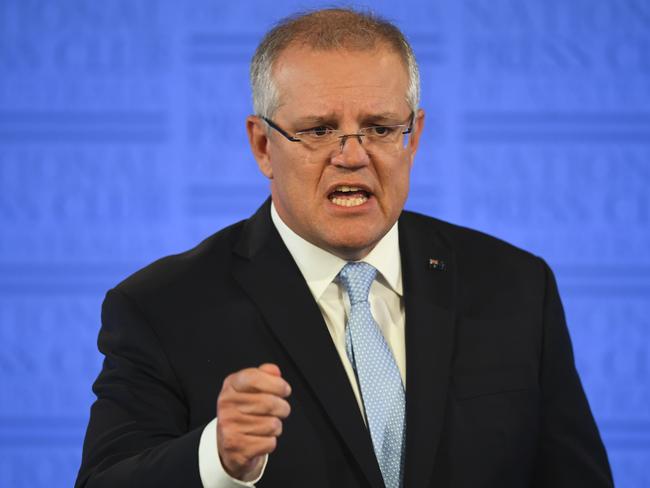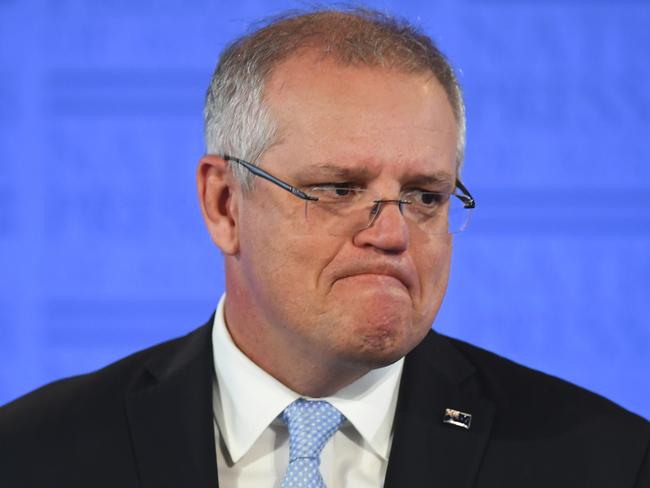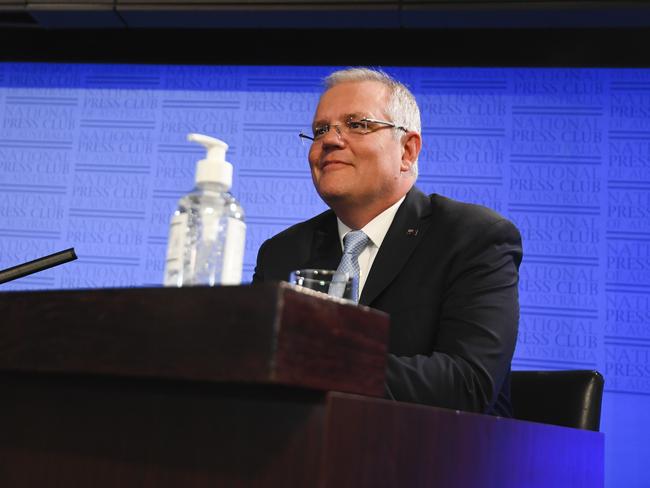Prime Minister Scott Morrison announces economic reform post-coronavirus
The Morrison government has abandoned controversial laws making it easier to deregister unions and ban officials in a bid to get unions and corporate bosses to “put aside differences” to create jobs for Australians.
Coronavirus
Don't miss out on the headlines from Coronavirus. Followed categories will be added to My News.
Warring unions and businesses have been ordered to cease fire and use a four-month truce to agree on industrial relations reforms to turbocharge the economy and create jobs.
Prime Minister Scott Morrison used the unprecedented economic crisis caused by COVID-19 to kickstart an ambitious overhaul of the workplace system, which he said had retreated to tribalism, conflict and ideological posturing and was no longer “fit for purpose”.
He also offered the first olive branch to the union movement with a “good faith” promise the Coalition would not pursue its union-busting Ensuring Integrity Bill.

MORE NEWS
Mental health gets $20m boost as China makes shock virus admission
The industries receiving support after the JobKeeper cut-off
Australia hits back at China as Trump issues WHO threat
“Our industrial relations system has settled into a complacency of unions seeking marginal benefits and employers closing down risks, often by simply not employing anyone,” Mr Morrison told the National Press Club on Tuesday.
“It is not beyond Australians to put aside differences to find co-operative solutions to specific problems — especially at a time like this.”
The Prime Minister announced Industrial Relations Minister Christian Porter would immediately lead a “time-bound, dedicated process” chairing five working groups made up of employers, industry bodies, unions and government to “chart a practical reform agenda”.
The groups will have until September to produce agreements for a “JobMaker” package focusing on award simplification to help small and medium businesses; getting enterprise agreement making “back to basics”; casuals and fixed-term employees;compliance and enforcement to ensure people are “paid properly” and unions “do the right thing”; and greenfields agreements to create “certainty” for new investments.

Mr Morrison said the economic damage of COVID-19 meant the policy priorities for recovery “will be different to those in place before the crisis”.
“We now have a shared opportunity to fix systemic problems and to realise gains as a matter of urgency to get more people back into work,” he said.
Mr Morrison said it would become apparent “very quickly” if progress is to be made.
“The working groups will either reach something approaching a consensus on issues, or they won’t,” he said. “But we’ve got to give it a go.”

Union and industry groups were cautiously optimistic, welcoming the opportunity to resolve long-held concerns with the industrial system.
Australian Resources and Energy Group chief executive Steve Knott said reforming greenfield agreements, made between a union and new employer without any workers, must be “first cab off the rank”.
“(It) is especially important given there is $100 billion worth of major projects advanced in Australia’s investment pipeline,” he said. “The international competition for this investment capital will be ever fiercer as governments around the world embark on their own stimulus packages.”
ACTU secretary Sally McManus was “glad to see the 20-year ritual of union-bashing stop”, saying: “We will take up the opportunity to sit down with employers and with the government.”
Originally published as Prime Minister Scott Morrison announces economic reform post-coronavirus



